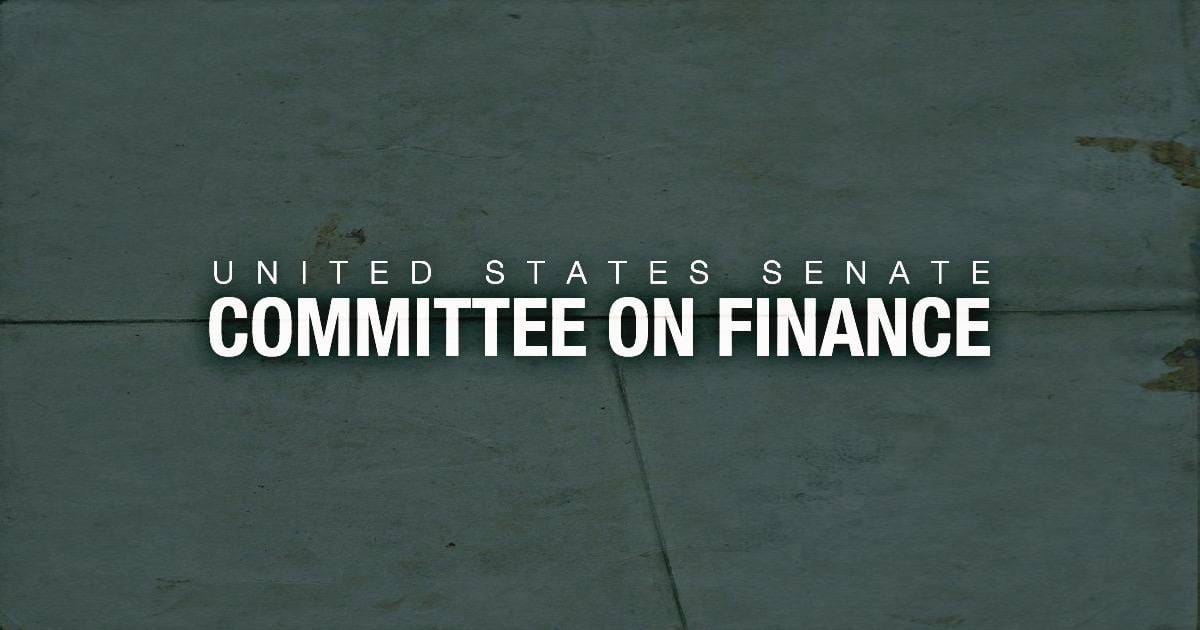US Senate Schedules Tax Hearing to Discuss Bitcoin and Crypto Tax Rules

The U.S. Senate Finance Committee has set a date for a significant discussion on how digital assets will face taxation. This gathering, named Examining the Taxation of Digital Assets, takes place on October 1 at 10:00 a.m. Eastern Time in the Dirksen Senate Office Building. The US Finance Committee shared details of the session in a recent statement, highlighting the need to address evolving challenges in the sector. Experts from various corners of the industry will share their views during the panel. The focus remains on practical ways to align tax policies with the fast-paced growth of digital currencies.
This hearing arrives at a pivotal moment for cryptocurrency users and businesses who have for years been navigating complex, confusing, and vague crypto tax reporting requirements. Under the most recent and current Internal Revenue Service (IRS) guidelines, every swap or use of crypto counts as a taxable event, regardless of profit or loss. Such demands often create burdens for everyday transactions, prompting calls for simpler approaches.
Stay In The Loop and Never Miss Important Crypto News
Sign up and be the first to know when we publishRecent Advances in Crypto Tax Proposals
Senator Cynthia Lummis, a vocal supporter of digital assets, put forward a reform bill earlier this summer to refresh outdated provisions in the tax code. Introduced on July 3, her measure targets areas like crypto mining rewards, staking income, and airdrops to provide clearer definitions and reduce compliance hurdles. Lummis argues these changes would foster innovation without compromising oversight.
The White House echoed similar sentiments in mid-July when Press Secretary Karoline Leavitt addressed potential exemptions for minor transactions. Leavitt noted the administration's backing for a de minimis rule that would spare small crypto purchases from capital gains taxes, aiming to make digital payments as straightforward as cash for coffee. This stance builds on broader efforts to position the United States as a leader in welcoming blockchain technology.
Witnesses at the upcoming crypto tax hearing bring deep knowledge to the table, representing both private firms and professional groups. Jason Somensatto serves as policy director at Coin Center, a nonprofit focused on blockchain advocacy. His insights often center on balancing regulation with technological progress.
Andrea S. Kramer, who founded ASKramer Law, specializes in financial services and securities matters. She has advised on cryptocurrency compliance for years, offering perspectives on how tax laws intersect with legal frameworks. Lawrence Zlatkin, Coinbase's vice president of tax, oversees global strategies for the major exchange and understands the operational side of reporting duties.
Annette Nellen leads the American Institute of CPAs' Digital Assets Tax Task Force, where she guides accountants through emerging rules. Her role involves studying practical effects on taxpayers and recommending adjustments for fairness. Together, these voices could influence upcoming guidance from the Treasury Department and IRS.
The discussion also ties into wider regulatory shifts, such as the Digital Asset Market Clarity Act now under Senate Banking Committee review. That proposal seeks to define boundaries between securities and commodities in the crypto space. Clearer tax treatments for stablecoins and other tokens might follow, easing uncertainties for investors.
As the hearing approaches, industry watchers anticipate questions on how to handle routine activities like wallet transfers or DeFi transactions. Exchanges like Coinbase have long pushed for streamlined reporting to avoid overwhelming users with paperwork. Progress here could encourage more institutional involvement and steady market growth.
Overall, this Senate step reflects growing recognition of cryptocurrencies as a permanent fixture in finance. By tackling taxation head-on, policymakers aim to support adoption while ensuring revenue collection stays effective. The outcomes may set precedents for years, shaping how Americans interact with their crypto holdings.

